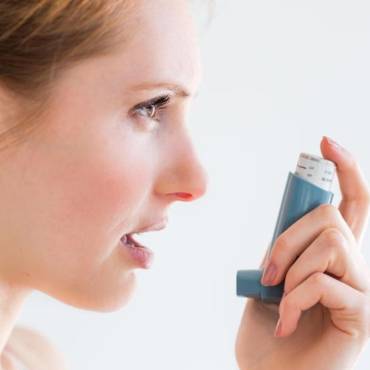While the first signs of an asthma attack may differ in everyone, the common symptoms are breathlessness, feeling of tightness in the chest, itchiness inside the rib cage that can’t be scratched. The overall process of breathing becomes more rapid and labored. These symptoms repeatedly occur in asthma patients. Wheezing or a whistling sound is closely associated with asthma and is it is a symptom that occurs beyond the earliest stages.
An asthma attack occurs when signs of asthma get worse. Asthma attacks hardly ever arrive without warning. Coughing, chest tightness, wheezing and breathing problems could be signs that can indicate an asthma attack. It is important to buy asthma medications as soon as the early signs begin to appear. Follow your asthma management plan carefully. If asthma medicine is not started, an asthma episode could get more severe.
An asthma patient goes for weeks or months without having an episode of asthma. If suddenly your chest begins to feel tight, you start coughing and wheezing. When an asthma attack, the muscles in your airway tighten. The linings of airways in the lungs get swollen and make more thicker mucus. All of this makes it hard to breathe.
Early Signs of an Asthma Attack
At the beginning of an asthma attack, you may notice changes that can warn you about asthma flare-ups. These may include coughing especially at night, breathlessness, trouble sleeping, feeling cranky. Follow the directions given in your action plan. You may be able to stop or prevent the episode of asthma or keep it from getting worse.
What happens during an Asthma flare-up?
When the symptoms of an asthma attack appear, it might be tough to handle even the daily normal things. You may experience a whistling sound especially when you exhale, feel like squeezing in the chest, a cough that won’t go away, short and rapid breathing. The use of rescue inhaler can help you stay calm. Buy asthma products online offered by alldaychemist.com at the lowest price.
When an Asthma episode gets worse
Your condition gets worse when you experience the signs of worsening asthma-like:
- Unable to stop coughing
- Tightness in the chest
- Trouble walking or talking
- Wheezing while inhaling or exhaling
- Having a pale, sweaty face
In a situation like these, you are advised to follow instructions in your asthma action plan.
What after an Asthma attack?
After an asthma attack, you will probably feel tired and exhausted. And you are more likely to have another episode too. You must be aware of all the warning signs of an asthma attack. By learning what prevents your asthma symptoms, you can lower your risk for an attack. Living with severe asthma and controlling it can be challenging. But achieving control over your asthma is very important to prevent an asthma attack from appearing for the second time. Try out these strategies to help manage severe asthma and stay healthy.
- Be aware- Learn as much as you can about asthma and be attentive to notice any changes that may mean things are getting worse. Don’t wait until things get worse. You may want to prevent things from getting to this stage.
- Take medications as instructed- Treating severe asthma involves the use of medications. The use of along acting medication taken daily and a rescue medication or inhaler when symptoms such as wheezing, coughing and breathlessness starts. It is important to see your health care specialist for a regular check-up of lung function and see how well your current treatment is working.
- Stay away from triggers- Smoke, air pollution, strong odour, or exposure to allergens can trigger an asthma attack. So, it is important to know what triggers the asthma symptoms and take precautions to minimize exposure. Keep your windows closed and switch on the air conditioner during summer. Keep your pet out of the bedroom to help minimize the risk of an allergic asthma episode
Also Read: Is Honey good for Asthma?



